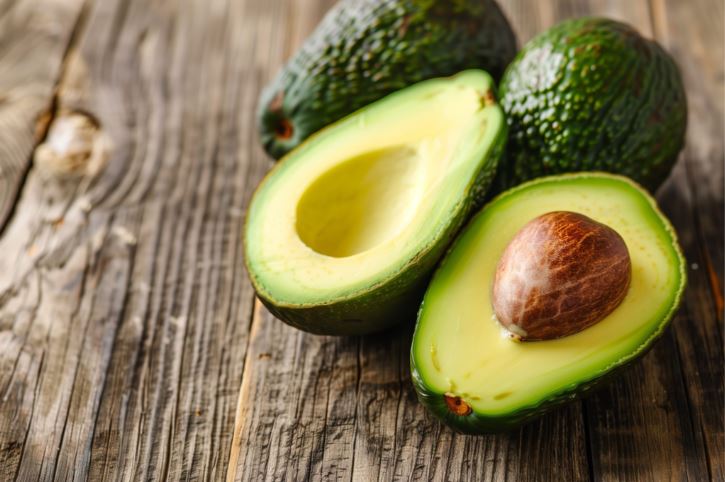


 11:28:28
11:28:28  2025-06-21
2025-06-21  1050
1050

A new study suggests that eating one avocado per day may help improve sleep. Research now confirms that sleep is just as important for overall health as nutrition and exercise. In a secondary analysis of the largest randomized controlled trial on avocados to date, researchers found that adults who ate one avocado each day for six months reported better sleep than those who consumed fewer than two avocados per month.
According to the CDC , getting enough sleep can reduce risk factors for heart disease. These results add to the growing evidence that supports avocados as a heart-healthy food and represent the first time a link has been found between avocado consumption and sleep. The American Heart Association (AHA) includes healthy sleep duration as one of eight essential health factors that, when optimized, can help promote ideal cardiovascular health.
Research insights from Penn State
“Sleep is emerging as a key lifestyle factor in heart health, and this study invites us to consider how nutrition—and foods like avocado—can play a role in improving it,” said Dr. Kristina Petersen, study author and associate professor of nutritional sciences at Penn State University. “Cardiovascular health is influenced by many factors, and while no single food is a silver bullet, some—like avocados—offer a range of nutrients that support multiple aspects of heart health. This is an encouraging step in expanding the science around avocados and the potential benefits of consumption.”
With support from the Avocado Nutrition Center, the study included 969 racially and ethnically diverse American adults who had elevated waist circumference, a cardiovascular risk factor that affects nearly 60% of adults in the United States. Participants were randomly assigned to either eat one avocado per day or to consume very few avocados (fewer than two per month) while maintaining their usual diet over a six-month period.
Measuring heart health outcomes
Cardiovascular health was assessed using the AHA’s Life’s Essential 8, a framework used by healthcare professionals as well as individuals to better understand and reduce risk factors. This tool identifies diet quality, physical activity, nicotine exposure, sleep, body weight, blood pressure, blood lipids, and blood glucose as leading behaviors and factors that when improved, can lead to better health outcomes.
Daily avocado intake was associated with improved diet quality (measured by the Healthy Eating Index 2015), blood lipids (modest reductions in LDL-C and total cholesterol levels), and sleep health (increased self-reported sleep duration). No significant effects were found for the other Life’s Essential 8 components.
Though the study was not originally designed to examine sleep as a primary outcome, the results offer an exciting direction for future research with more rigorous methodology and tools to better understand the potential for how the nutrients in avocados may support aspects of cardiovascular health. There are several strengths to this study design, but the findings are not conclusive and cannot be generalized to all populations.
Avocados have the following nutrients per serving (1/3 medium avocado) that may play a role in sleep:
Additionally, the combination of fiber and monounsaturated fats in avocados contributes to their beneficial impact on cardiovascular health.
Reality Of Islam |
|

Labor short

A new ultra

Batteries p
 9:3:43
9:3:43
 2018-11-05
2018-11-05
10 benefits of Marriage in Islam
 7:5:22
7:5:22
 2019-04-08
2019-04-08
benefits of reciting surat yunus, hud &
 9:45:7
9:45:7
 2018-12-24
2018-12-24
advantages & disadvantages of divorce
 11:35:12
11:35:12
 2018-06-10
2018-06-10
 6:0:51
6:0:51
 2018-10-16
2018-10-16
 8:15:37
8:15:37
 2023-02-16
2023-02-16
 7:0:55
7:0:55
 2022-05-17
2022-05-17
 5:58:12
5:58:12
 2021-12-18
2021-12-18
 8:4:21
8:4:21
 2022-01-08
2022-01-08
 2:34:48
2:34:48
 2022-01-18
2022-01-18
a hero waters thirsty wild animals
 9:4:9
9:4:9
 2022-01-06
2022-01-06
 3:42:22
3:42:22
 2021-12-24
2021-12-24
 5:41:46
5:41:46
 2023-03-18
2023-03-18
| LATEST |